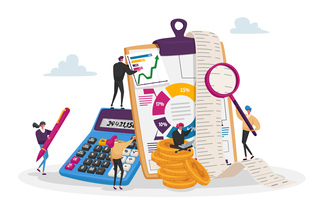In his latest column for Professional Adviser, Chris Budd discusses how delaying consumption can help improve wellbeing… One of the more well-known aspects of financial wellbeing is that experiences give greater, and longer lasting, wellbeing than buying stuff. Retail therapy is a myth. Happy Money (by Elizabeth Dunn and Michael Norton) develops this argument by explaining that there is wellbeing to be had from anticipation. How can financial advisers and planners use this knowledge to increase the wellbeing of their clients? Expectation and Wellbeing If holidays create memorie...
To continue reading this article...
Join Professional Adviser for free
- Unlimited access to real-time news, industry insights and market intelligence
- Stay ahead of the curve with spotlights on emerging trends and technologies
- Receive breaking news stories straight to your inbox in the daily newsletters
- Make smart business decisions with the latest developments in regulation, investing retirement and protection
- Members-only access to the editor’s weekly Friday commentary
- Be the first to hear about our events and awards programmes







